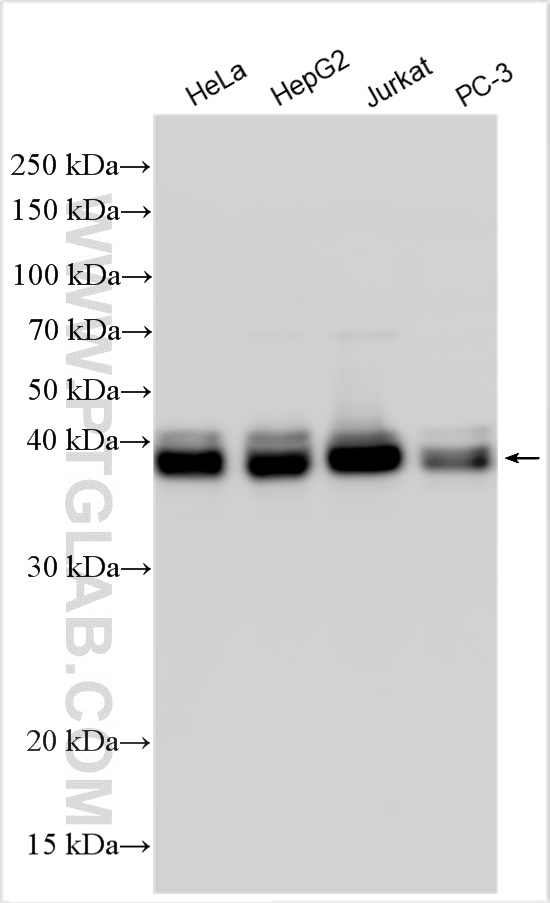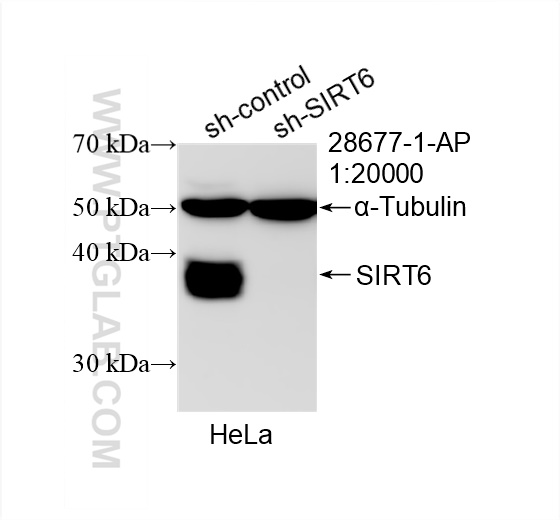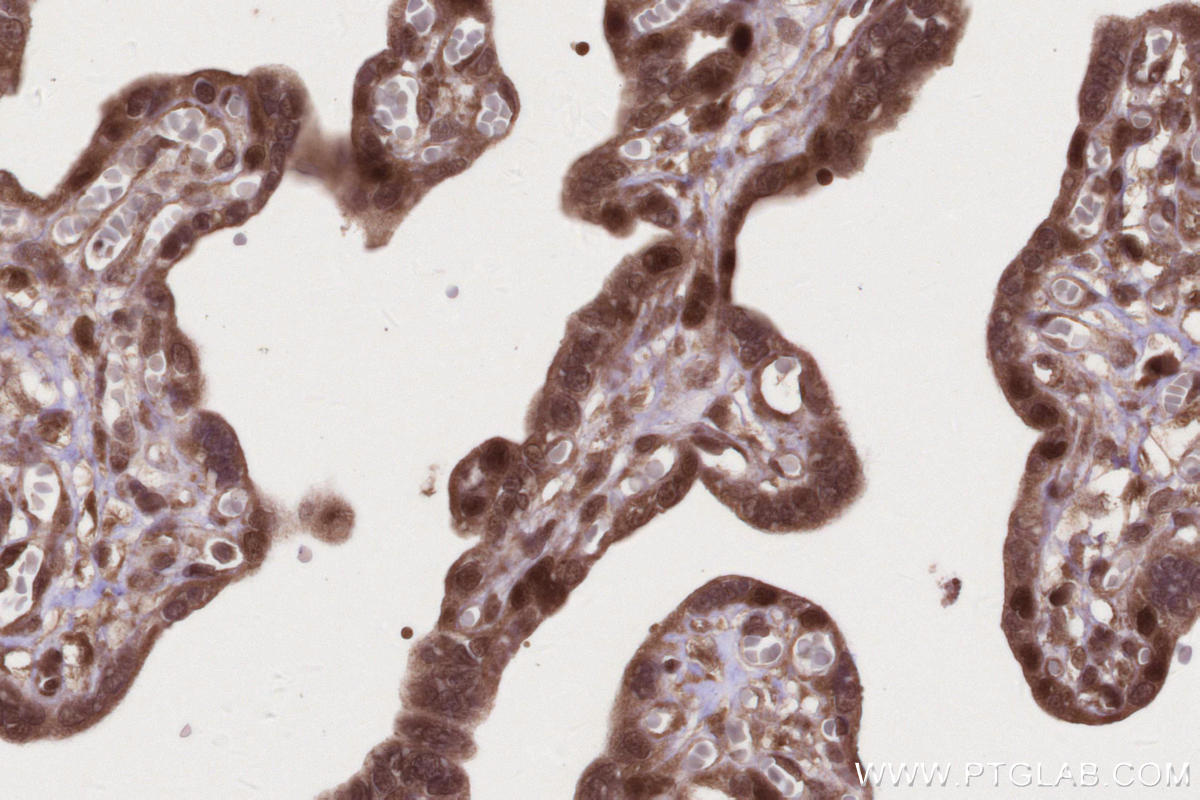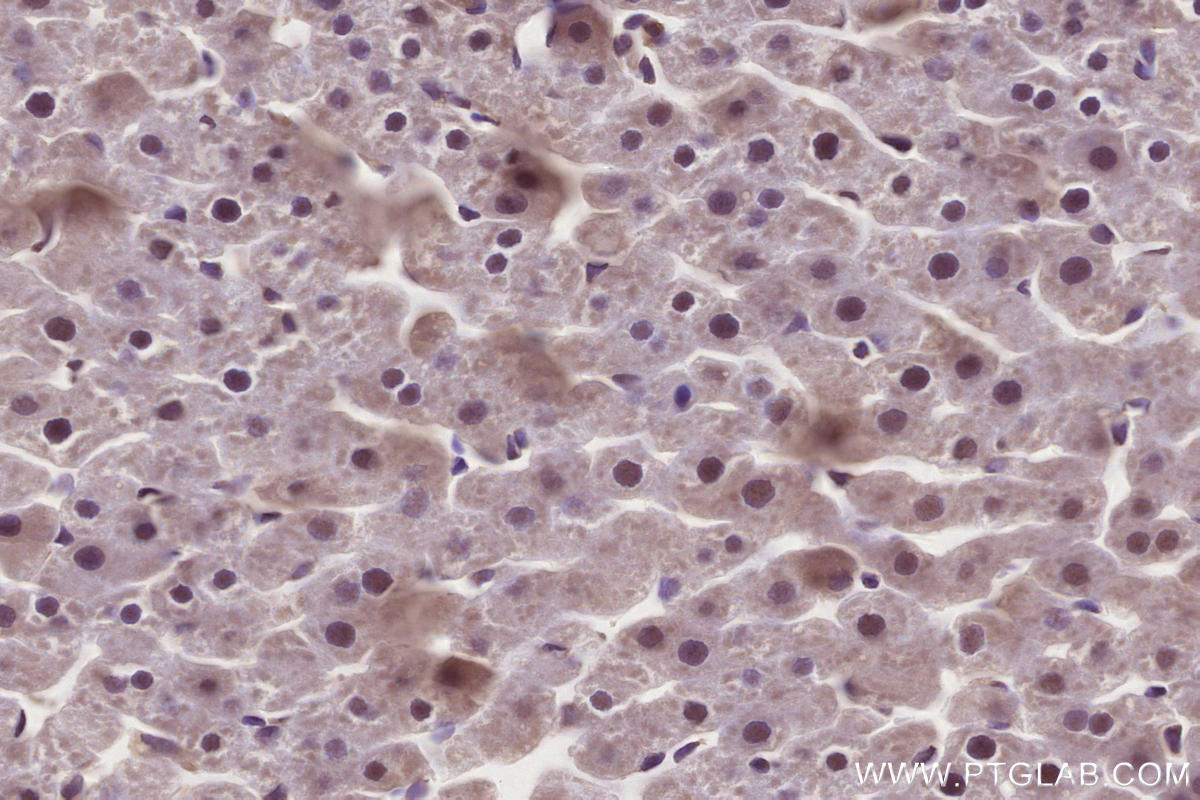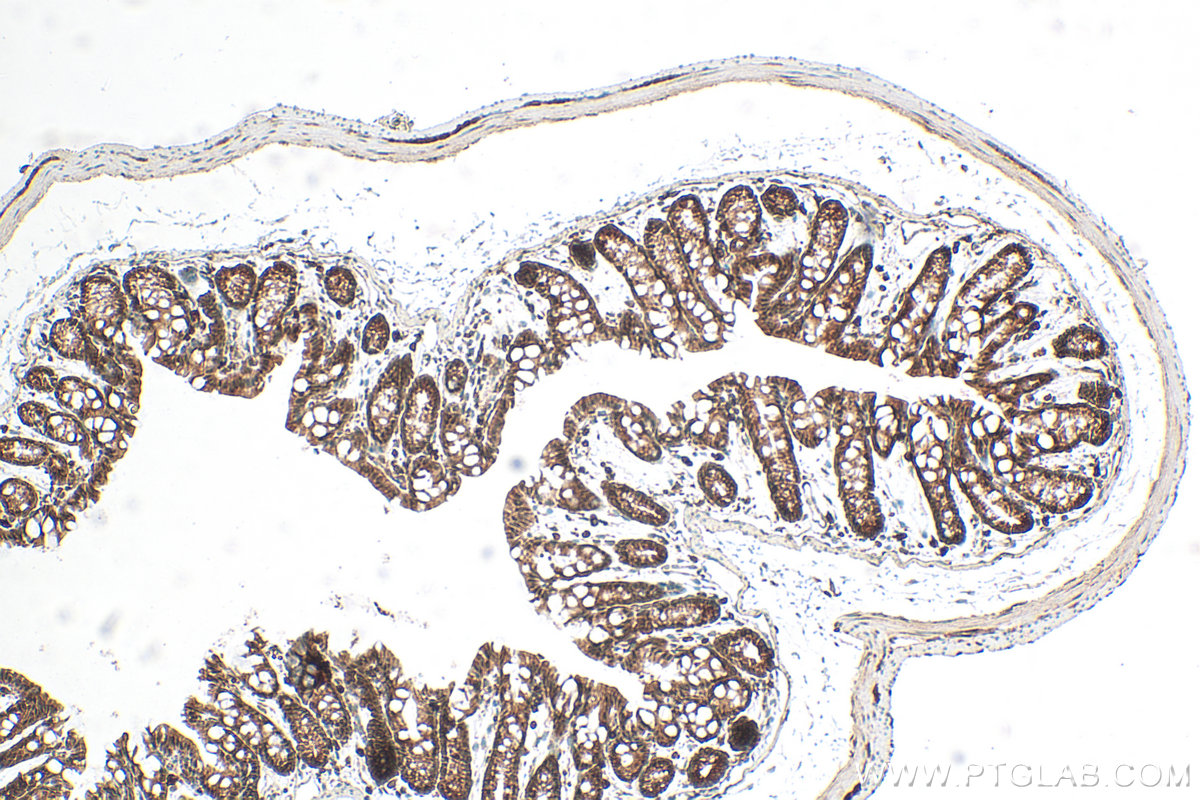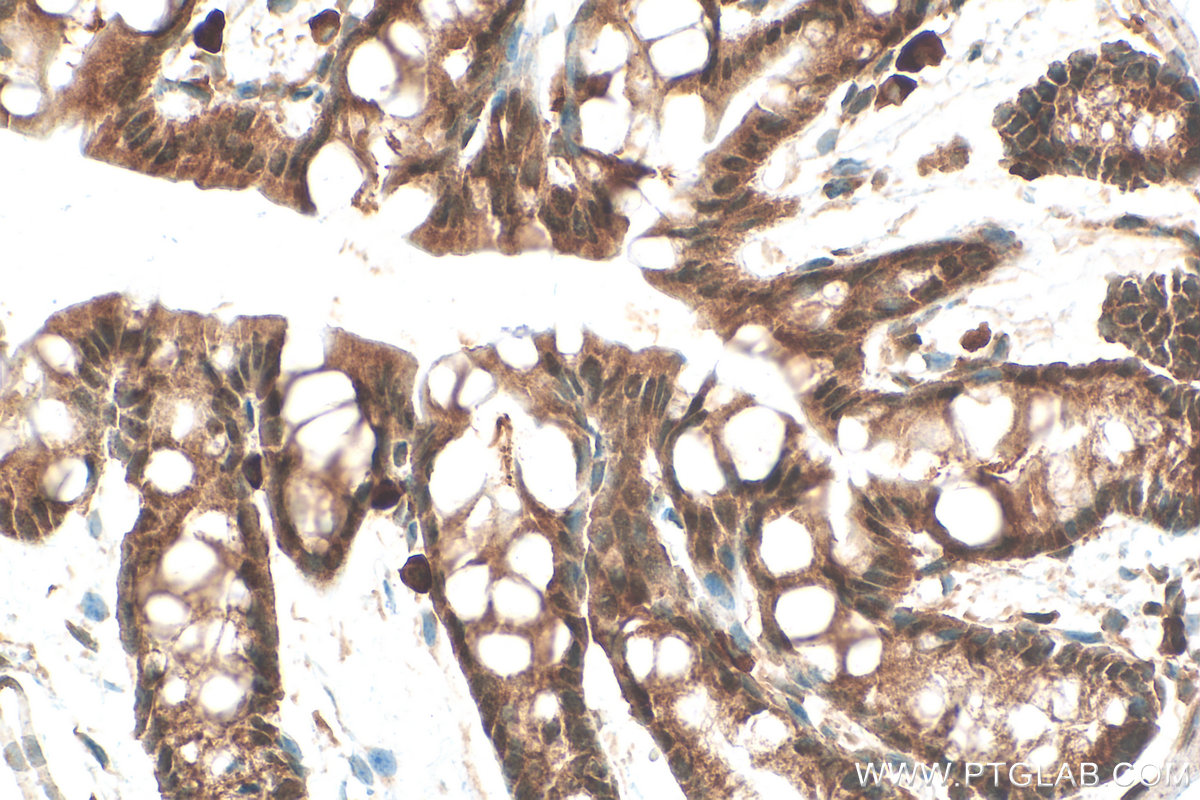验证数据展示
经过测试的应用
| Positive WB detected in | HeLa cells, HepG2 cells, Jurkat cells, PC-3 cells |
| Positive IHC detected in | human placenta tissue, mouse colon tissue, mouse liver tissue, rat liver tissue Note: suggested antigen retrieval with TE buffer pH 9.0; (*) Alternatively, antigen retrieval may be performed with citrate buffer pH 6.0 |
推荐稀释比
| 应用 | 推荐稀释比 |
|---|---|
| Western Blot (WB) | WB : 1:1000-1:6000 |
| Immunohistochemistry (IHC) | IHC : 1:250-1:1000 |
| It is recommended that this reagent should be titrated in each testing system to obtain optimal results. | |
| Sample-dependent, Check data in validation data gallery. | |
产品信息
28677-1-AP targets SIRT6 in WB, IHC, ELISA applications and shows reactivity with human, mouse, rat samples.
| 经测试应用 | WB, IHC, ELISA Application Description |
| 经测试反应性 | human, mouse, rat |
| 免疫原 | SIRT6 fusion protein Ag29163 种属同源性预测 |
| 宿主/亚型 | Rabbit / IgG |
| 抗体类别 | Polyclonal |
| 产品类型 | Antibody |
| 全称 | sirtuin (silent mating type information regulation 2 homolog) 6 (S. cerevisiae) |
| 别名 | EC:2.3.1.-, EC:2.3.1.286, EC:2.4.2.-, hSIRT6, NAD-dependent protein deacetylase sirtuin-6 |
| 计算分子量 | 39 kDa |
| 观测分子量 | 39 kDa |
| GenBank蛋白编号 | BC028220 |
| 基因名称 | SIRT6 |
| Gene ID (NCBI) | 51548 |
| RRID | AB_3669666 |
| 偶联类型 | Unconjugated |
| 形式 | Liquid |
| 纯化方式 | Antigen affinity purification |
| UNIPROT ID | Q8N6T7 |
| 储存缓冲液 | PBS with 0.02% sodium azide and 50% glycerol , pH 7.3 |
| 储存条件 | Store at -20°C. Stable for one year after shipment. Aliquoting is unnecessary for -20oC storage. |
背景介绍
The SIRT6 gene is located at chromosome 19p13.3 and contains 8 exons. The encoded protein has a total length of 355 amino acids. SIRT6 protein is a member of the Sirtuins, which is a class of NAD+-dependent protein deacetylases involved in stress resistance and metabolic homeostasis. SIRT6 also plays roles in various tumors as both an oncogene and tumor suppressor gene. A previous study in osteosarcoma reported that SIRT6 regulates the migration and invasion of tumors through the ERK1/2/MMP9 pathway. (PMID: 30675128)
实验方案
| Product Specific Protocols | |
|---|---|
| WB protocol for SIRT6 antibody 28677-1-AP | Download protocol |
| IHC protocol for SIRT6 antibody 28677-1-AP | Download protocol |
| Standard Protocols | |
|---|---|
| Click here to view our Standard Protocols |
